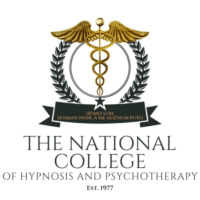
Safeguarding Encompasses:
- preventing harm and abuse by demonstrating high standards of professional care
- responding effectively to allegations of harm and abuse
- working closely with other relevant agencies and their procedures
- safe and responsible lone working
- using learning to improve care for clients.
Therapists contribute significantly to the wellbeing of clients and safeguarding plays a vital role in defining that contribution. Appropriate confidentiality and boundaries around the therapeutic relationship, alongside mutual respect for skills and roles are essential elements of the therapeutic work.
NCHP/NSTT support trainees and members to work with other agencies in the interests of safeguarding children and adults.
NCHP/NSTT work to make students, trainees and members aware of the importance of their own responsibilities to safeguard themselves in both public and private practices.
What is Expected of Trainees/Members
- All trainees/members are expected to be able to demonstrate that they are aware of the relevant statutory framework, which sets out safeguarding principles for their client group(s) – and be confident that they can act in accordance with these principles.
- NCHP/NSHP&M requires trainees/members working in public and private settings to take responsibility for finding out, and working to the safeguarding principles and policies of the organisation.
- Supervisors have a responsibility to make sure that their knowledge is up-to-date, based on the relevant standards and statutory frameworks, on all matters relating to safeguarding.
- Clients and members of the public should be confident that NCHP/NSHP&M, and its trainees/members meet the appropriate professional standards and will always endeavour to provide a safe, knowledgeable and accountable service.
What is expected of NCHP/NSTT and its staff
- NCHP/NSTT will update registered members on any changes to law relating to safeguarding, as and when necessary.
Safeguarding in training
The UKCP Standards of Education and Training say:
- Training courses shall have mechanisms for safeguarding the rights of students and trainees. This should include readily-available consultation procedures, complaints and grievance procedures.
- Training organisations should be able to evidence that they have obtained informed consent from students and trainees who participate as patients or clients in practical and clinical teaching. This also applies to relevant experiential or group work incorporated into the training.
As such we have these procedures in place.
